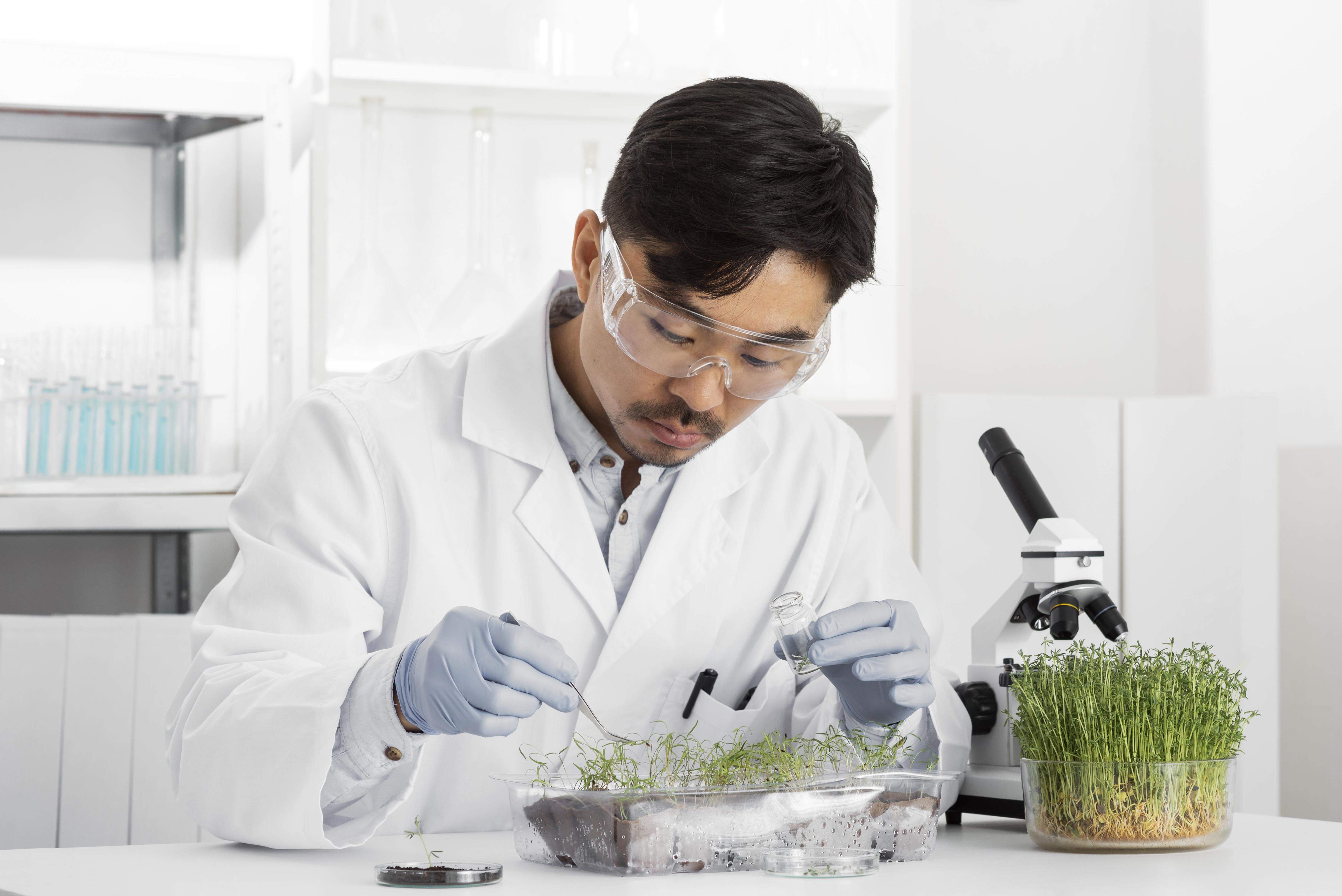Innovative Technologies in Algae Cultivation: From Photobioreactors to Energy Efficiency

Algae-based biofuels have the potential to transform the energy landscape, offering a sustainable alternative to fossil fuels. However, to fully realize this potential, the cultivation of algae must be optimized for both efficiency and scalability. This requires the integration of advanced technologies that enhance growth conditions, reduce energy consumption, and streamline operations. In this blog, we explore the cutting-edge technologies driving innovation in algae cultivation, from photobioreactors to energy-efficient harvesting systems, and how the AiDOOS platform can help organizations implement these technologies effectively.
Optimizing Light Exposure and Nutrient Delivery:
Photobioreactors are at the heart of modern algae cultivation, providing a controlled environment where light exposure, CO2 absorption, and nutrient delivery can be precisely managed. These systems are designed to maximize the efficiency of photosynthesis, ensuring optimal growth rates and biomass production.
Technology Highlight: Advanced photobioreactors use LED lighting systems that can be tuned to specific wavelengths, enhancing the efficiency of photosynthesis while reducing energy consumption. AI-driven control systems monitor and adjust light intensity and nutrient levels in real-time, ensuring that the algae are always growing under optimal conditions.
Case Study: Solix BioSystems developed a photobioreactor with AI-driven light management, leading to a 30% increase in biomass yield and a 20% reduction in energy use.
Scalability and Flexibility:
One of the key advantages of photobioreactors is their scalability. These systems can be scaled from small, lab-based setups to large, industrial-scale operations. Modular designs allow for easy expansion as production needs grow.
Example: A biotechnology company successfully scaled their photobioreactor system from a pilot project to a full-scale operation, increasing production capacity by 50% within two years.
Closed-Loop Systems for Sustainable Growth:
Closed-loop algae cultivation systems are designed to recycle water, nutrients, and CO2, making the process more sustainable and cost-effective. These systems minimize waste and reduce the need for external inputs, contributing to a lower environmental footprint.
Technology Integration: AI-driven monitoring systems track nutrient levels, water quality, and CO2 concentration, automatically adjusting the system to maintain optimal growth conditions. This reduces the need for manual intervention and ensures consistent production quality.
Case Study: Algenol’s closed-loop system incorporates AI and machine learning to optimize resource use, resulting in a 25% reduction in water and nutrient consumption.
Floating Algae Farms:
Floating algae farms represent a novel approach to cultivation, utilizing the vast expanses of the ocean to grow algae at scale. These farms harness natural sunlight and seawater, reducing the need for artificial inputs and providing a sustainable solution for large-scale biofuel production.
Innovative Design: Floating farms are equipped with sensors and AI systems that monitor ocean conditions, adjusting the position and depth of the algae farms to optimize growth. These systems can also track weather patterns and ocean currents to minimize the impact of environmental fluctuations.
Example: The North Sea Algae Project implemented floating farms equipped with AI-driven monitoring systems, achieving a 40% increase in productivity compared to traditional methods.
Reducing Energy Consumption with AI:
Energy efficiency is a critical factor in making algae-based biofuels commercially viable. AI technologies play a crucial role in optimizing energy use across the cultivation process, from regulating lighting systems to managing water circulation.
Technology Application: AI-driven energy management systems analyze data from sensors placed throughout the cultivation system, identifying areas where energy use can be reduced without compromising production. For example, AI can optimize the timing of lighting cycles, reducing electricity consumption while maintaining growth rates.
Case Study: An algae cultivation facility implemented an AI-powered energy management system, reducing overall energy consumption by 18% and lowering operating costs.
Integration of Renewable Energy Sources:
Integrating renewable energy sources, such as solar or wind power, with algae cultivation systems can further enhance sustainability. Photobioreactors and other cultivation systems can be powered by renewable energy, reducing reliance on fossil fuels and lowering the carbon footprint of biofuel production.
Example: A collaboration between a renewable energy company and an algae biofuel producer led to the development of a solar-powered algae cultivation facility, reducing the facility’s carbon footprint by 35%.
Unified Technology Solutions for Algae Cultivation:
The AiDOOS platform offers comprehensive technological solutions for optimizing algae cultivation systems. From AI-driven analytics to advanced photobioreactor management, AiDOOS provides the tools needed to enhance efficiency, scalability, and sustainability.
Platform Capabilities: Real-time monitoring, predictive maintenance, and automated control systems are just some of the features that AiDOOS brings to the table, enabling organizations to optimize their algae cultivation operations seamlessly.
Benefits: By leveraging the AiDOOS platform, algae biofuel producers can reduce energy costs, improve yield, and scale operations efficiently, all while maintaining a strong focus on sustainability.
Customizable and Scalable Solutions:
Whether you're operating a small pilot project or a large-scale algae farm, the AiDOOS platform is designed to be customizable and scalable. This flexibility allows organizations to tailor the technology to their specific needs and expand their operations as required.
Case Study: A mid-sized algae biofuel company utilized the AiDOOS platform to scale their operations from a pilot project to full-scale production, achieving a 50% increase in output within a year.
Ongoing Support and Integration:
AiDOOS not only provides advanced technology but also offers ongoing support to ensure smooth integration with existing systems. From initial setup to continuous optimization, AiDOOS partners with organizations to drive successful algae cultivation and biofuel production.
Client Success: Testimonials from clients highlight the ease of integration and significant improvements in energy efficiency and production yield after adopting the AiDOOS platform.
Innovative technologies are revolutionizing algae cultivation, making it more efficient, scalable, and sustainable than ever before. From advanced photobioreactors to AI-driven energy management systems, these technologies are crucial for the future of algae-based biofuels. The AiDOOS platform offers a unified solution that integrates these cutting-edge technologies, enabling organizations to optimize their algae cultivation operations and contribute to a more sustainable energy future. Embrace the power of innovation with AiDOOS and take your algae biofuel production to the next level.

By redesigning packaging, exploring reusable models, investing in smart tracking, and leveraging the VDC model for execution, beverage manufacturers can reduce their environmental footprint while boosting their brand relevance and operational resilience.

Even the most capable in-house IT teams often fall short when it comes to minimizing downtime. While Managed Services solve much of the downtime problem, the VDC model supercharges it with flexibility, scalability, and domain-specific expertise.